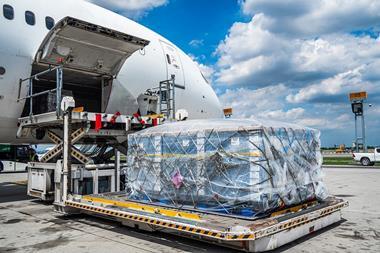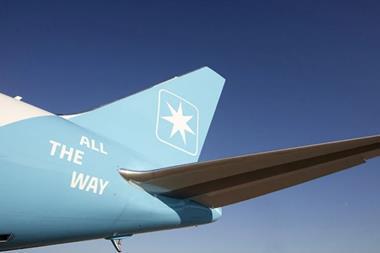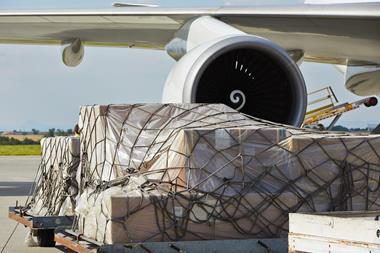European shippers want an end to “the race to the bottom” on airfreight rates and have called for greater transparency in air cargo industry performance, to improve service quality.
Joost van Doesburg, airfreight policy manager at the European Shippers´ Council (ESC), said: “Shippers are happy with lower rates, but are not happy with the service they are getting. Service quality is also touching an all-time low, so in the end it is a real race to the bottom.”
Van Doesburg says that ESC members have identified “a very large variety of problems” in airfreight, which include “definitely not delivered as promised” and lower quality service in certain aspects of the cool chain.
He added: “Everybody tries to get the lowest rate possible from the other part of the supply chain: the shipper from the freight forwarder, the freight forwarder from the air carrier and the carrier from the handler. This creates a market dynamic that is not sustainable.”
Van Doesburg argues that low rates are not sustainable because supply chain operators are failing to respect partnerships based on quality and trust: “Now everybody is shopping around for the cheapest rate, and moving to other freight forwarders, who are moving to other airlines, who move to other handlers”.
The ESC referenced research by Seabury for IATA, on stopping the modal shift from air to ocean and air to express, that saw 20% of shippers surveyed favouring lower airfreight rates.
Said Van Doesburg: “If you look at the long list of options that shippers could choose from, then 80% chose options based on quality, including greater transparency and a reduction in airfreight transit times.
“We took the wrong exit from the highway, and that is the race to the bottom exit. We should now take the quality exit, and see the air cargo industry compete. That means freight forwarders, airlines and handlers becoming much more focused on quality, instead of only on price.”
The ESC believes that the air cargo industry faces a “structural crisis” and wants to see a transparent benchmarking system for service performance which will be available to shippers and other airfreight participants in the supply chain.
Said Van Doesburg: “In this way the industry starts to communicate about quality. It brings a new competition element into the market that is not based on the lowest rates but on a balanced approach between rates and quality.”
The ESC will soon publish a White Paper on this topic as the basis for a wider air cargo industry debate.
Said Van Doesburg: “The problem of air cargo overcapacity will only increase, and increase and increase, and then my question to the air cargo industry is: what do we want?
“Do we want a continuation of the race to the bottom on rates or do we want a new element in the market, a race to the top on quality and on service levels?”
The ESC paper will also tackle shipper mistakes, such as the weekend rush for airfreight capacity.
Said Van Doesburg: “In many companies Friday is exports day. That means every plane is full on Friday, Saturday and Sunday, and so the rates go up. Why is Friday export day? Nobody knows.”
The ESC would also like to see tripartite, longer term commercial agreements between shippers, freight forwarders and airlines.
“We want a much bigger focus on partnership in the whole supply chain. We would like shippers to have the ability to make tripartite agreements with a freight forwarder and an airline for a certain time period, perhaps a year, with a specific rate on certain routes.
“The shipper will feel committed and will use this agreement for the rest of the year, and not shop around for lower rates.”
But such longer term agreements will need a fundamental shift in the business model for forwarders and airlines, suggests the ESC.
“We see now that the later a freight forwarder books cargo space, the cheaper the rate, and that is totally different for the passenger side of the industry.
“The earlier you make the booking, the cheaper it is, and when booking a few hours before the flight, you pay the highest price.
“It is strange that we have a system that is based on booking only 48 or 24 hours in advance. You then get a system where airlines are focused only on the next 48 hours instead of the next three months or the next year.
“The industry needs to give rewards and lower rates to the loyal customer. The spot rate should be higher than the agreement partnerships that are focused on the next twelve months.”
Added Van Doesburg: “It is not going well with the air cargo industry, and we need to change the business model to get out of this structural crisis.”










